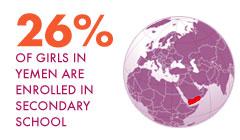
May 17, 2012 | Law and Justice
Woman of the Week: Honorable Ellen Gesmer
The Honorable Ellen Gesmer discusses her experience with family law and the importance of having women on the bench.
The Honorable Ellen Gesmer came to family law through an early job out of law school, as an attorney at a community legal services provider in Bedford-Stuyvesant, Brooklyn, where she represented parents accused of abuse and neglect. “I found it fascinating,” she said. “These are such difficult cases. Often, people just didn’t know how to be good parents, and needed help.” so I did some of that and found it really interesting.” For more than two decades, she practiced family law, working on divorce and custody cases, among others.
“It seemed to me that what happens to a family at the time of divorce was so important, and I wanted to do it in a responsible way,” she said. “Once I started doing it, I decided it was an area where the law can make one’s life so much worse or so much better. I felt a responsibility to continue to do it, and make it as humane as possible.”
A graduate of Harvard University (then Radcliffe) and Yale Law School, Judge Gesmer has served in the Matrimonial division of New York State’s Supreme Court for the past six years. Her impact extends beyond the bench: she is a member of the Committee on Matrimonial and Family Law of the Women’s Bar Association, and sits on the Board of Directors of Dancing in the Streets. Fresh off the plane from a trip to Ghana with the Virtue Foundation’s Women Judges in the Pipelines Initiative, Judge Gesmer spoke to Women in the World Foundation about her observations from more than three decades of experience in family law.
How is family law different from other kinds of law practice?
The most significant aspect is the impact on children. In a divorce, people who are basically reasonable, sensible people are acting at their very worst. When they’re fighting about their children, I always give them a speech about why it’s better to settle than to continue to fight. If one litigates about one’s children, then you spend enormous amounts of time with your lawyers telling them everything bad about the other person, and then you repeat it on the witness stand. Then the next day, when you’re supposed to go together to Johnny’s school play, it’s very hard to go and be civil to one another, let alone be supportive or cooperate to problem-solve after you’ve been attacking each other.
So the conventional way of dealing with divorces moves people in the opposite direction from where they need to be in order to be good parents in a reconfigured, post-divorce family. I try to use the powers of the court to focus on the interest of the children, and to get people behave in a responsible way, even though they’re getting divorced.
Currently, 27% of state court judges are women, according to legal publisher Forster-Long. Why is it important to have women on the bench?
I think that given our culture, more women are comfortable dealing with emotional issues than men. And I think to deal with family cases well, you have to deal with the emotions going on in them. So it seems that people who are comfortable dealing with those emotions will be able to be more effective than those who aren’t, and that’s going to be more true of more women.
I find that I’m much more effective at settling family law cases when I am able to figure out what concerns people have other than the dollars-and-cents concerns. The extent to which they feel betrayed, hurt, condescended to, disrespected and so on-- those emotional issues play a big role in peoples’ willingness to settle cases.
But it’s certainly not the case that only women can do this work, and I also think it can be a danger, and has been a danger in family law, that it can be perceived as a women’s field, which can make it less respected, of course.
How did your recent trip to Ghana affect your perceptions of New York’s laws and court system?
One of the things that it made me appreciate was how the resources available to the court affect the ability of judges to be able to dispense justice, and to be perceived as dispensing justice. We heard that the judiciary in Ghana is not well-respected. This is a very complicated issue, but one aspect was that courts in Ghana don’t have court reporters or tape recorders. When a judge listens to the trial, in additional to listening to testimony, ruling on objections, and thinking about how it all ties together, she or he also has to take notes. Those notes become the record of the trial.
So there’s no external check on the judge’s memory or account of what happened. It’s a system that’s very amenable to distortion and it’s not surprising that people don’t respect it.
What has your experience as a lawyer and judge in the matrimonial court taught you about relationships and marriage?
It gives you a perspective on what’s important. People can destroy their marriages over really trivial things. I became really appreciative of what was good in my marriage. And I think one does develop a perspective on valuing and preserving what’s good in a relationship. I don’t know how divorce lawyers compare to the general population in terms of the health of their marriages, but I think it made me much more aware of what was good, and I learned to not sweat the small issues.
Anna Louie Sussman is a writer and editor for the Women in the World Foundation website, and a frequent contributor to major U.S. magazines and newspapers.